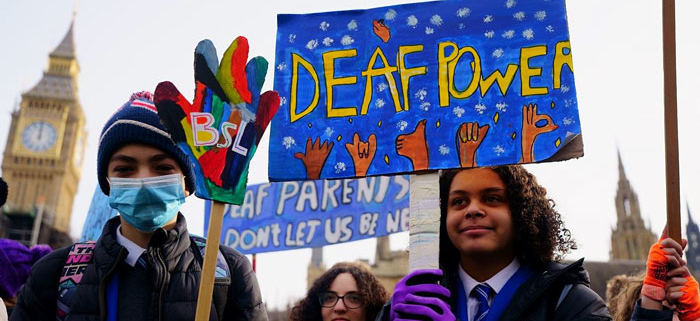BSL on course to become Legally recognised language of UK
British Sign Language (BSL) is on course to become a recognised language, after MPs have backed a proposal put forward by Labour MP Rosie Cooper.
The MP for West Lancashire whose parents were both born deaf, said making BSL a legally recognised language would send a clear message to every deaf person that “their language is equal and should be treated as equal”.
The legislation has the backing of EastEnders actress Rose Ayling-Ellis, who made history as the first deaf contestant on Strictly Come Dancing when she won the show last year.
What is BSL?
British Sign Language is just like any other language except it’s 100% visual.
It is a richly expressive language, with distinctive grammar using handshapes, facial expressions, gestures and body language to convey meaning.
It’s important to point out that Sign Language is not an interpretation of a spoken language; it’s a language in its own right, which is why this new legislation is so important.
Isn’t BSL already an official language?
Well, yes and no.
BSL was recognised as an ‘official’ language by the UK government in 2003, but it has no legal protections such as those of Welsh or Gaelic, for example.
The bill aims to improve accessibility for deaf people and would see the promotion of BSL when making public service announcements.
It would also see the launch of an advisory board of BSL users to offer guidance to the Department for Work and Pensions (DWP) on how and when to use it and look at increasing the number of BSL interpreters.
What does this mean for deaf people?
Well, according to the British Deaf Association (BDA), the bill will encourage government departments and public bodies to follow the guidance, giving deaf people “equal access to education, employment, public services such as the NHS”.
The bill aims to improve the lives of deaf people and will encourage organisations across the nation to take up the BSL mantle, benefiting both themselves and the deaf community.
It was given an unopposed second reading in the Commons after securing the government’s support, but it will have two more stages to pass before becoming law.
The final reading is expected to take place in March.




Leave a Reply
Want to join the discussion?Feel free to contribute!